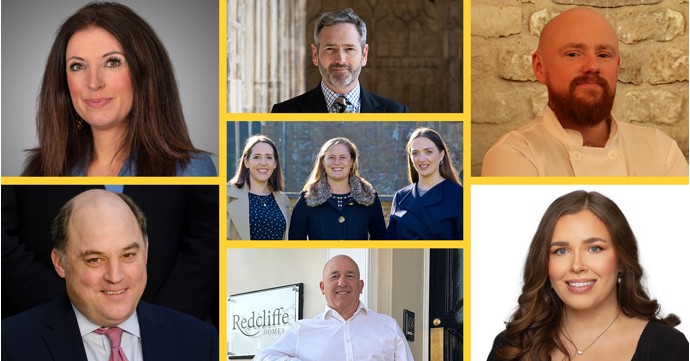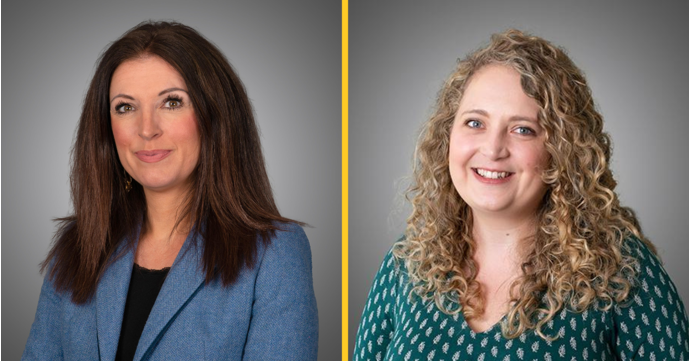Having the support and expertise to help you through divorce is key to reaching a settlement that's fair for everyone, without it becoming a too costly or lengthy process.
SoGlos chats to Shona Alexander, partner and divorce lawyer at Cheltenham-based Charles Russell Speechlys, about the priorities, pitfalls and hang-ups of the divorce process – and how the firm supports couples through it.
Talk us through the process of getting a divorce in 2025.
The divorce process completely changed in April 2022. We now have only what is known as 'no fault' divorce – giving unreasonable behaviour or adultery as reasons to support a divorce application doesn't exist anymore. So the only requirement is that the applicant, or applicants, complete a statement confirming that the marriage has irretrievably broken down.
It is now possible to apply as a sole applicant or jointly – both spouses can apply together. The current statistics show that approximately 75 per cent are sole applications, with about 25 per cent being joint.
The papers are then served, either on the other party in a sole application, or the second applicant completes a form to confirm they are happy to proceed with the divorce in a joint application.
A big change is that there is now, following the issue of a divorce application, a 20-week, statutory period for reflection. After that 20-week time has passed, you can make an application for a conditional order of divorce. This was formerly known as the 'decree nisi', but importantly gives the court the power to approve any financial agreement the parties may reach. The 20-week statutory period gives both parties time and space to discuss the finances.
Six weeks and one day from the making of the conditional order, you can make an application for the final order of divorce – formerly a 'decree absolute'. It is this order that terminates and brings the marriage to an end.
So the minimum period for divorce, if it all went through smoothly and applications were made and granted immediately, would be 26 weeks and one day – but it usually takes the court some days or weeks to deal with applications for divorce, conditional order and final order. Usually the parties will wait until the finances have been resolved before applying for the final order. It is usually closer to one year from the making of a divorce application to the final order – and longer if the finances are complex.
What are the common priorities for high-earning clients when it comes to their divorce settlement?
I think a lot depends on the individual circumstances of the clients, but many face a situation where there has always been one household; and now suddenly, there's now going to be two.
There's a greater cost – people are going to need their housing and income needs met; and for wealthy clients with high net worth, it will be looking at their assets, above their needs and seeing how those are to be shared.
Some clients may have come into a marriage with a lot of premarital wealth, they may have inherited assets, they may have a business that they've built up either before or partly during the marriage. There's also tax that's going to have to be paid on a settlement to be taken into account. All those factors we have to look at to understand what is there; and what is the matrimonial pot that is there to be shared by the parties.
We're seeing an increase in prenuptial agreements, outlining that anything you bring to the marriage, anything you inherit, anything you are gifted stays your separate property; and that you both intend to share what you build up during the marriage, as long as housing and income needs are met. By doing this, you've already started to set out how things will be dealt with in case of divorce.
These are also being encouraged by wealthy parents who want to start doing inheritance tax planning; and want any wealth that they gift early to their children to be protected.
What issues arise in cases involving children? How would you advise clients to avoid these issues during the process?
It can be really difficult, because you may have a situation where there is tension between the parties as to the nature of the parenting approach they both take. You may have problems whereby there is an anger as to why the marriage has come to an end. It may be that somebody has got a new partner and they want to introduce them to the children; and there's animosity about that new partner from the other parent. It's balancing all of that and also understanding when a child's voice should be heard.
Trying to keep matters out of court can be best for everybody. Once people get caught up in the court process, it's very costly, very lengthy and just creates more tension – sometimes people don't realise how that is coming across to the children and the impact it will have upon them.
You also offer mediation to couples – how does this work?
Mediation is different in that I work with both parties to help them reach an agreement. It's a completely neutral, confidential environment. I can't give them legal advice, I just help them work through the settlement process; and then stress test their agreement to check it actually does what they want it to do.
It's a quite different process – it can be empowering for couples at the end of a relationship because, particularly if they've got kids, it's about them doing what they think is right for their family; and not having a solution imposed upon them by somebody else. It's actually them having ownership and control over that process. It can really help in them establishing a new framework of communication, too.
There's a huge push now towards non court dispute resolution (NCDR) – how can we help families stay out of the court process?
It could be through mediation; solicitor negotiations; roundtable settlement meetings; a private financial dispute resolution (FDR) appointment, where following negotiations, you appoint a quasi judge and sort everything out in a day; or the arbitration process, where a 'private judge' will make an award after hearing from both parties, which will then be converted into a court order.
A lot of those scenarios will depend on the how the clients feel. For example mediation would not be appropriate in a case where there is domestic abuse, because it's quite intense and the parties have to feel they are able to work together – we do screening to assess whether mediation is right for people.
And it may well be that you have to issue court proceedings to have a framework there in case you don't resolve it in mediation, but that doesn't mean to say that you're not working to come to an agreement. It may be that you can't sort out finances in mediation, for example, but you can sort out issues involving children. So different things might work for different aspects of the case.
What are the key advantages for clients when they choose Charles Russell Speechlys to help them navigate their divorce?
I think it really helps that we've got such a broad team of people, who will have dealt with all kinds of situations. I've got colleagues that I can speak to about a case and somebody might say, 'I was dealing with that a few months ago; and this is what we did'. We also have international offices so our family team has a global reach, which can be very important on cases with an international element.
There are a number of other people we can call upon – including in other teams in the firm as well as experts in tax; expert accountants; some of the best barristers who we've built up strong relationships with; therapists and counsellors – it's making certain that the clients feel they are being looked after and supported throughout the process.
What would you say to people that are thinking about starting the divorce process with Charles Russell Speechlys?
I would just say come and talk to us. All of us appreciate what a difficult time it is, but the process doesn't need to be as horrific as you think it's going to be. People see cases in the media and think 'good grief, is this what it's going to be like?', but it doesn't have to be like that at all.
Sometimes it is being about being proactive. I would always say that I think negotiated settlements are the best because then the clients have had proper input into and involvement with their settlement; and then we can do the structuring, we can help establish what is best in their individual circumstances.




















